BookLikes
World's #1 Blog Platform designed for book bloggers, reviewers, writers - all Book Lovers. Your Reading Life. Redesigned.
Book Love Story: Why I love historical fiction

It's all about love during the Valentine's Week. Each day of the Valentine's week will present one book love story with a different genre insight. Today, it's all about historical fiction. We're happy to welcome Susanna from SusannaG - Confessions of a Crazy Cat Lady on BookLikes blog.
*
A guest post by Susanna from SusannaG - Confessions of a Crazy Cat Lady
I love historical fiction. I love it in so many of its forms, from fictionalized biographies of long-dead monarchs, to stories about "normal people" of the past, to historical mysteries, time travel stories, and historical romances.
Why do I love historical fiction? I read in order to be taken on a trip to places I would otherwise never visit, and historical fiction is the gateway to the past. And I love and am interested in the past - I trained as a historian.
I confess I can be a bit picky about historical fiction. There is nothing more likely to take me out of the flow of a book I'm enjoying than to run headlong into a "fact" that's wrong. My next reaction is undoubtedly going to be "well, if they got that wrong, what else did they get wrong that I didn't catch?" But good historical novel can give you a feel for another time and place in great ways. You can feel like you've been there yourself.
I have been in love with historical fiction ever since I was a child, and my mother gave me Esther Forbes' Johnny Tremain or Elizabeth Goudge's The Little White Horse. These books took me on trips to the birth of the American Revolution, and to a remote valley in 1830s England. The stars of these shows were always children, of course, because they were also children's literature.
When I was a little older, she gave me YA novels like A Proud Taste for Scarlet and Miniver, E.L. Konigsburg's fictionalized biography of Eleanor of Aquitaine. Since YA mostly didn't exist then, she also gave me novels written for adults that she thought I might enjoy. These included, I remember, both Mary Renault's The King Must Die and Michael Shaara's The Killer Angels, which led to trips to ancient Greece and to the battle of Gettysburg.
She also gave me novels by Georgette Heyer - my first regency romances - and introduced me to the "Williamsburg novels" of Elswyth Thane. Heyer has never been out of print, but Thane's novels can be hard to find these days, as they are long out of print.
Yes, I have always loved historical fiction.
What historical novels might be a good place to start, if you've never read much of the genre before?
Well, if you love, for example, contemporary mysteries or romances, you might do well to pick a historical mystery or romance - there are plenty of both. If you like science fiction, you might try a time travel story. There are several types of story that are historical fiction mixed with another genre - if you like that other genre, you might want to start there.
Or perhaps you can pick a period and place that sounds interesting to you, and start there. Some settings are more popular than others - if you want to read stories about ancient Rome or Tudor England, you're in great shape. Other settings may be less popular, but can certainly supply great reads - 1600s Japan is not a common setting (in English, anyway), but is the setting for James Clavell's terrific Shogun.
But let me make a few more specific recommendations, of historical novels I adore. Maybe you will love some of them, too.
Gary Corby's books about Nicolaos, the only private investigator in Pericles' Athens, and often featuring his annoying younger brother, Socrates, are a fun read. They begin with The Pericles Commission.
Colleen McCullough's The Masters of Rome series, which starts with The First Man in Rome, tells the tale of the fall of the Roman Republic, from the conflict of Marius and Sulla, through Julius Caesar vs. Pompey, and the tale of Augustus, Mark Antony, and Cleopatra. Note: McCullough adores Julius Caesar to the point of hero-worship.
Robert Graves' I, Claudius and Claudius the God are the purported autobiography of Rome's st-st-stuttering fourth emperor, the Emperor Claudius, who was found cowering behind a curtain after the murder of his nephew, Caligula. But mostly it's a wonderful tale of murder and mayhem and madness in the imperial family, and most of all, of Augustus' poisonous (in more ways than one) wife, Livia.
Lindsay Davis' The Course of Honor is the tale of the Emperor Vespasian, and his long love affair with Caenis, a slave in the imperial household.
Ellis Peters wrote many tales of Brother Cadfael - I'm not so fond of the first, but the second, One Corpse Too Many, is a great introduction to the series, set in the 1100s in Shrewsbury, England.
Maurice Druon's Cursed Kings series, which starts with The Iron King, tells the tale of the fall of France's Capet kings, and the start of the Hundred Years War.
Connie Willis' Doomsday Book is a pair of stories - one of a historian from 2060 Oxford's time machine project, set to research the 1300s, and the other of her colleagues in 2060, who realize that they've accidentally sent her to the wrong time and place - and they aren't sure they can get her back.
Anya Seton's Katherine is a fictionalized biography of Katherine Swynford, Geoffrey Chaucer's sister-in-law, and third wife of John of Gaunt. Katherine Swynford and John of Gaunt are the ancestors of the modern British royal family. A tale of romance, adultery, murder, plague, and rebellion.
Hilary Mantel's Wolf Hall and Bring Up the Bodies are the first two volumes of a trilogy about Thomas Cromwell, Henry VIII's great minister. These cover the collapse of Henry's marriage to Katherine of Aragon, and the rise and fall of Anne Boleyn. These might be easier to follow if you know the general outline of what happened to the wives of Henry VIII.
C.J. Sansom's wonderful Shardlake novels are the best historical mysteries I have ever read. Matthew Shardlake is a hunchbacked Tudor lawyer, and when we meet him in Dissolution, it's 1537 and he's working for Thomas Cromwell, dissolving monasteries. Cromwell sends him down to investigate a doomed (and frozen) monastery in Sussex. The previous investigator was murdered there.
Judith Rock's The Rhetoric of Death is the first of several fine historical mysteries about Jesuits and the ballet, in the Paris of Louis XIV.
Lisa See's Peony in Love is a strange tale from 1600s China, told by an Angry Ghost.
Daphne du Maurier's The Glass Blowers is the tale of her own family during the French Revolution.
Susanna Clarke's Jonathan Strange and Mr Norell is a strange and lovely mixture of historical fiction about the Napoleonic wars, and fantasy about the return of magic to the land. Take my advice and don't get involved with The Man With the Thistle-Down Hair, or his seelie court.
A.S. Byatt's Possession tells two stories - one of two Victorian poets, and another of the English professors who research them in the 1980s. There is a great deal of faux Victorian poetry, as well as a fanatical American collector, and a spot of grave robbing.
Elswyth Thane's Yankee Stranger tells the story of the American Civil War, through the eyes of the members of two intermarried Virginia families, the Spragues and the Days, and those of Eden Day's fiance, a Yankee reporter.
Geraldine Brooks tells a very different story of the Civil War in March - the story of the father of the sisters in Little Women. He has a very different war from the accounts he sends home to his wife and daughters.
Amy Stewart's Girl Waits with Gun is the tale of New Jersey's first female sheriff's deputy, and how she got the job.
Laurie R. King's The Beekeeper's Apprentice is the first of her dozen or so Mary Russell novels. In 1915, the teen-aged Mary Russell, disguised as a boy, is wandering the Suffolk downs, and encounters a bad-tempered man hunting bees - his name is Sherlock Holmes. This book is the story of her apprenticeship in detection, and of their first big case. If you're picky about Sherlock Holmes, you might want to give this series a pass.
R.F. Delderfield's To Serve Them All My Days tells the tale of David Powlett-Jones, a Welsh miner's son, a shattered man invalided out of World War I, who goes to teach history at a Bamfylde, a remote boy's school.
*
Watch out for more Book Love Stories on BookLikes blog this week! If you'd like to join, please do! Write your book love story on your blog and add the link in the comment section below. Make sure to add why I love tag to your post so we could find it and share it.




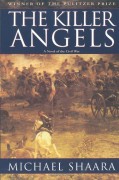

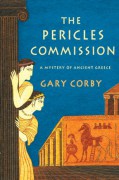

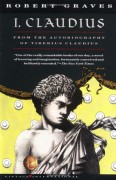
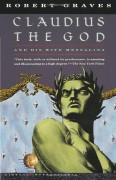
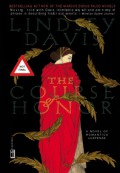
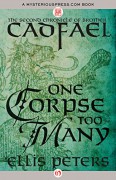

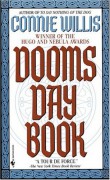
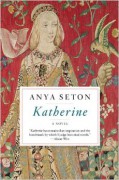





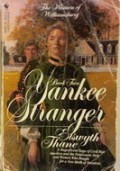



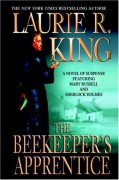
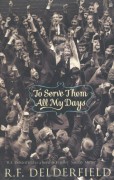
 3
3
 18
18
 40
40
